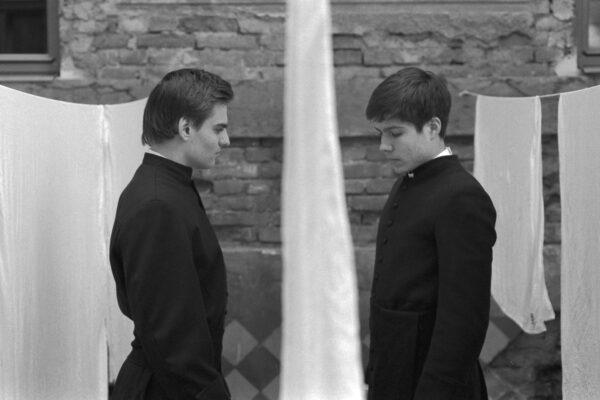The Bible cautions Christians that they cannot serve two masters (see Matthew 6:24), but the state-sponsored Catholic organization Pacem in Terris (PiT) instructed member clergy to do exactly that in Czechoslovakia under communism. Adopting the language of the international peace movement, the ostensibly religious body was really a means for the state to monitor and dominate the Church. The underground revolt against PiT within the Catholic Church leads to profound moral dilemmas for two newly arrived seminarians in Ivan Ostrochovsky’s “Servants.”

Two seminarians in "Servants." Loco Films




